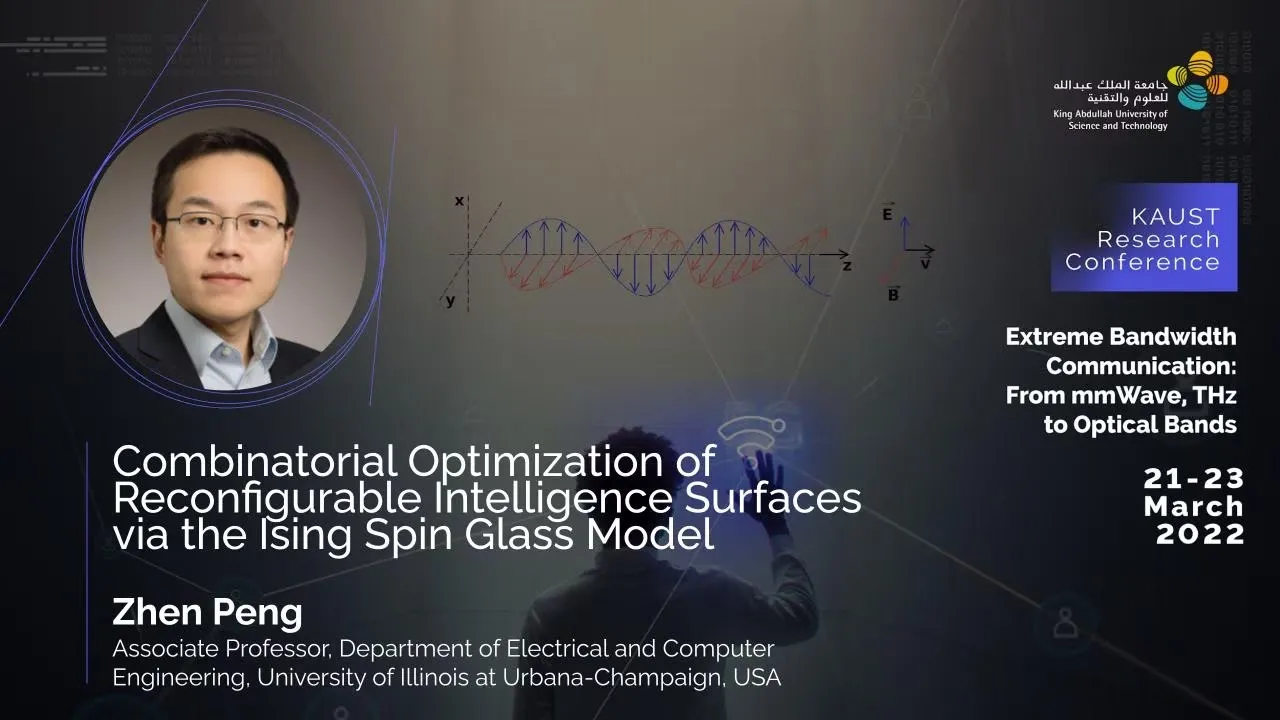
Prof. Peng: Combinatorial Optimization of Reconfigurable Intelligence Surfaces via the Ising Spin Glass Model
Overview
Abstract
The reconfigurable intelligent surface (RIS) based on discrete meta-surfaces with tunable elements has been widely studied in wireless communication and antenna communities. Researchers have devoted substantial efforts to investigating large-scale optimization algorithms that achieve desired channel conditions. This is particularly challenging as the RIS are nearly passive due to minimal hardware complexity and power requirements. In this talk, we will discuss a physics-oriented, mathematically tractable computational framework that enables the optimization of RIS configuration without the need for detailed knowledge of the propagation channel. The new idea stands on expressing the power of channel transfer function elegantly as an Ising spin glass model, a common mathematical abstraction employed in statistical mechanics to describe the spin state of arrays of magnetic particles. The performance of the proposed work is demonstrated in representative wireless propagation environments.
Brief Biography
Dr. Zhen Peng is currently an Associate Professor at the Department of Electrical and Computer Engineering (ECE ILLINOIS), the University of Illinois at Urbana-Champaign. His research interests are in the area of computational, statistical, and applied electromagnetics. The goal is to simulate classical and quantum electrodynamic physics with intelligent algorithms on state-of-the-art computers, where virtual experiments can be performed for the prediction, discovery, and design of complex systems at unprecedented scales. Prof. Peng is a recipient of 2021 and 2019 EPEPS Best Paper Award, 2019 IEEE EMC Symposium Best Paper Award, 2018 National Science Foundation CAREER Award, 2018 Best Transaction Paper Award - IEEE Transactions on Components, Packaging and Manufacturing Technology, 2018 ICEAA - IEEE APWC Best Paper Award, 2017 IEEE Albuquerque Section Outstanding Young Engineer Award, 2016 University of New Mexico ECE Department's Distinguished Researcher Award, 2015 Applied Computational Electromagnetics Society (ACES) Early Career Award, 2014 IEEE Antenna and Propagation Sergei A. Schelkunoff Transactions Prize Paper Award, and a number of Young Scientist Awards from various conferences.
